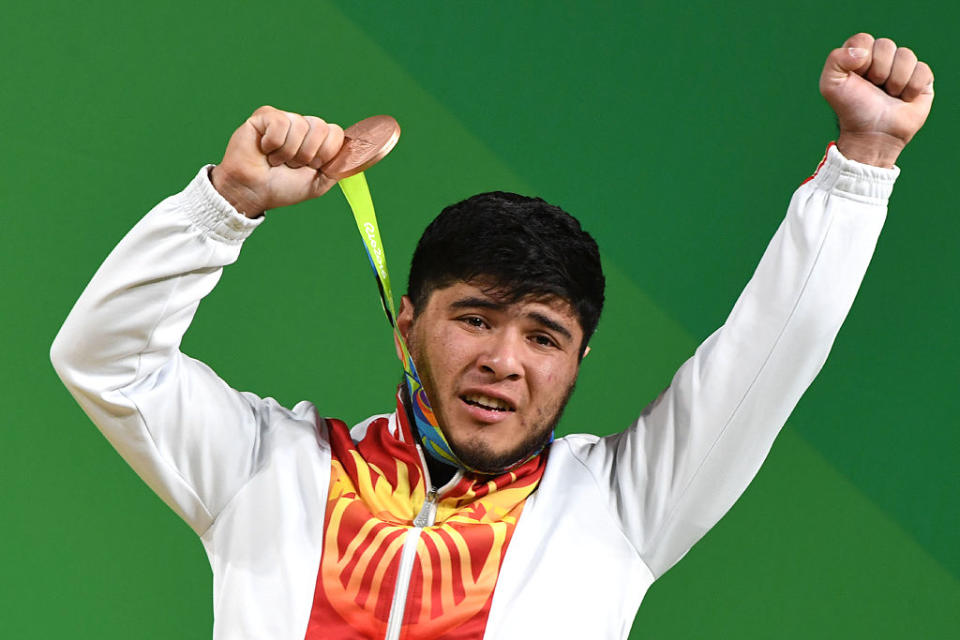The first Rio de Janeiro Olympian has been stripped of a medal for doping

Medal count | Olympic schedule | Olympic news
The first Olympic medal at the 2016 Rio de Janeiro Olympics has been stripped, according to the Associated Press, and the honor goes to … drum roll, please … Kyrgyzstan weightlifter Izzat Artykov.
The International Olympic Committee stripped Artykov of his bronze medal in men’s weightlifting after he tested positive for strychnine, per Olympics Journalists’ Association president Steve Wilson.
1st Rio medal stripped for doping: Izzat Artykov of Kyrgyzstan loses bronze in weightlifting after positive test for strychnine
— Steve Wilson (@stevewilsonap) August 18, 2016
Strychnine is a potent stimulant, perhaps better known for its ability as a highly poisonous substance capable of sending humans into convulsions, asphyxia and eventually death in doses of 30-100 milligrams. Its first known use in the Olympics occurred in 1904, when American marathoner Thomas Hicks was given two one-milligram doses of strychnine, egg whites and brandy to overcome cramping.
Hicks captured gold, thanks to fellow American Fred Lorz’s disqualification for covering 11 miles of the St. Louis marathon course in an automobile, and he kept his Olympic medal until his death in 1952.
However, the World Anti-Doping Agency has since added strychnine to its list of banned substances, and therefore the 5-foot-3, 150-pound Artykov will not be allowed to keep his bronze after lifting 339 kilograms (747.367 pounds). Instead, Colombian Luis Javier Mosquera Lozano, who finished fourth with a lift of 338 kilograms, is in line to receive the bronze medal in Rio’s 69-kilogram weightlifting event.
Artykov’s bronze was Kyrgyzstan’s lone medal in Rio de Janeiro. He captured a gold medal at the 2016 Asian Weightlifting Championships this past April, securing his first trip to the Olympic Games.

 Yahoo Sports
Yahoo Sports 


